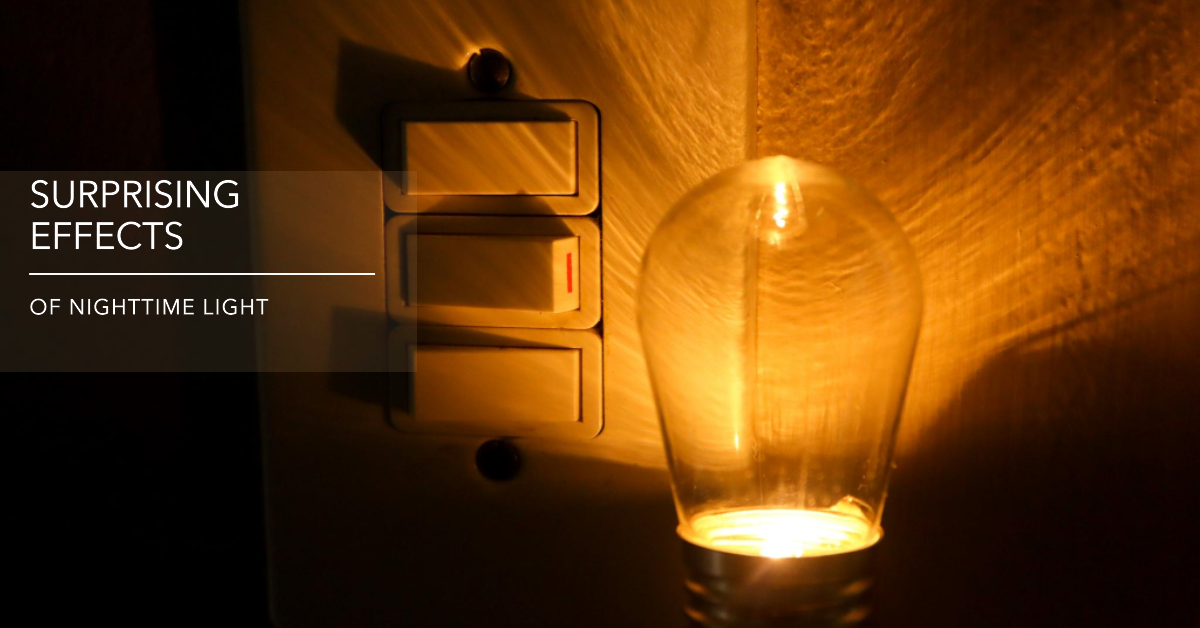The Science of Sleep: Is It Harmful to Keep a Light On at Night?
In today's fast-paced world, it's not uncommon for many of us to keep a light on at night, whether it's a nightlight for comfort or simply because we're not used to complete darkness. But have you ever wondered how this might be affecting your sleep and overall health? In this detailed blog, we delve deep into the science of sleep and explore whether it's harmful to keep a light on at night. From the impact on sleep quality to its effects on your circadian rhythm and melatonin production, we'll uncover the truth and provide you with valuable insights and tips for better sleep.

Sleep is an essential aspect of our lives, influencing both our physical and mental well-being. We all know that getting a good night's sleep is crucial, but what if something as simple as leaving a light on at night could undermine the quality of our sleep? In this article, we're going to explore the science of sleep and find out whether keeping a light on at night is indeed harmful.
The Basics of Sleep
Before we delve into the effects of nighttime lighting, let's briefly review the basics of sleep. Sleep is a complex physiological process that occurs in stages. These stages include rapid eye movement (REM) and non-REM sleep, each serving different functions. Sleep is not just about rest; it plays a vital role in memory consolidation, physical recovery, and maintaining our overall health.
The Importance of Darkness for Sleep
One of the key factors that promote healthy sleep is darkness. Our bodies have evolved to associate darkness with sleep, triggering the release of melatonin, a hormone that regulates our sleep-wake cycle. When we expose ourselves to artificial light at night, we disrupt this natural process.
How Light at Night Affects Sleep Quality
Exposure to light at night can lead to several negative consequences for sleep quality:
-
Delayed Sleep Onset: The presence of light can delay the time it takes for us to fall asleep. Our brains interpret light as a signal to stay awake, making it harder to drift off into a restful slumber.
-
Reduced REM Sleep: REM sleep is crucial for cognitive function and emotional well-being. Light exposure at night can lead to a reduction in REM sleep, potentially leaving you feeling groggy and less emotionally stable.
-
Disrupted Circadian Rhythm: Our internal biological clocks, or circadian rhythms, regulate the timing of various physiological processes, including sleep. Artificial light at night can disrupt this rhythm, leading to sleep disturbances and even long-term health problems.
-
Lower Melatonin Production: Melatonin, often referred to as the "sleep hormone," is primarily produced in the absence of light. Exposure to light at night can suppress melatonin production, making it difficult to fall and stay asleep.
Health Implications of Sleeping with a Light On
The effects of getting inadequate sleep go beyond just feeling tired the following day.Chronic exposure to light at night has been associated with various health issues:
-
Insomnia: Prolonged exposure to light at night can contribute to insomnia, a condition characterized by difficulty falling asleep or staying asleep.
-
Increased Risk of Obesity: Disrupted sleep patterns, including those caused by light exposure at night, have been linked to weight gain and obesity.
-
Mood Disorders: Poor sleep quality due to light at night can increase the risk of mood disorders like depression and anxiety.
-
Increased Cancer Risk: Some studies suggest a potential link between exposure to artificial light at night and an increased risk of certain cancers, including breast cancer.
Minimizing the Harmful Effects of Light at Night
Now that we've explored the potential harm of sleeping with a light on, let's discuss some strategies to minimize its effects:
-
Use Dim Red Lights: If you need some light at night, opt for dim red lights. Red light has a lower impact on melatonin production compared to blue or white light.
-
Install Blackout Curtains: To create a dark sleep environment, invest in blackout curtains that block out external light sources.
-
Limit Screen Time: Avoid screens like smartphones, tablets, and computers before bedtime, as these devices emit blue light that can interfere with sleep.
-
Choose Sleep-Friendly Bulbs: Use warm, low-intensity bulbs in your bedroom to create a cozy, sleep-inducing atmosphere.
-
Establish a Bedtime Routine: Develop a consistent bedtime routine to signal to your body that it's time to wind down and sleep.
Conclusion
In conclusion, while it may be tempting to keep a light on at night for various reasons, it's essential to consider the potential impact on your sleep quality and overall health. The science of sleep is clear: darkness is conducive to restful and restorative sleep. By minimizing exposure to artificial light at night and creating a sleep-friendly environment, you can take significant steps toward improving your sleep and well-being. So, the next time you're debating whether to leave the light on, remember the importance of darkness for a good night's sleep.










